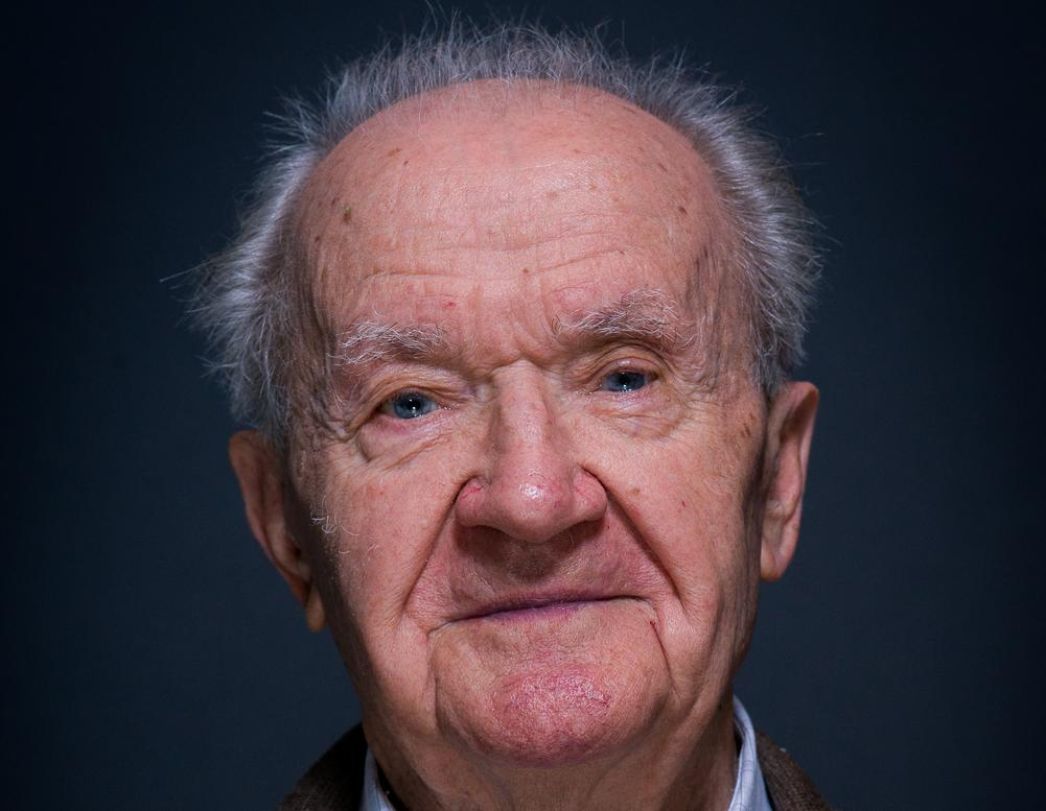Transcript
Narrator One Sunday in September 1939, a mother sent her son to the nearby garden to get some parsley. Nine days ago he had turned 17. On his way, he was stopped. He would never see his mother again.
Władysław Kożdoń “Around 11 in the morning, my mother said to me, ‘Why don’t you go to the garden and pick some parsley for me?’ I got on my bicycle and rode off. Halfway there, a special constable stopped me. I was arrested along with my father [who was also out and about] and taken to Rybnik in an army vehicle. My mother, meanwhile, waited in vain for us to return. Her voice still echoed in my ear, how she’d sent me out to get parsley.”
Narrator Władysław Kożdoń grew up in a conflict-laden region of Upper Silesia. Polish people were a minority. Days after the invasion of Poland by the German army in 1939, he was arrested. He had done nothing criminal; the arrest was because of his activity as a boy scout. Along with 2000 Poles, he arrived at the train station in Weimar on the 15th of October, in the midst of weekend travellers.
Władysław Kożdoń “The travellers who were arriving at other platforms or who were waiting for the departure of a local train did not look at us. Only a very few furtive glances came my way.”
Narrator It was cold that morning, the fog still low in Weimar’s streets. Wladyslaw walked with his father in the middle of a stream of people. Starting at the train station, they walked the eight kilometres to the concentration camp on Ettersberg. Lorries drove behind them, receiving the bodies of those who died during the march.
He first stayed a week in a special camp where he was crammed with others into tents at the edge of the muster ground. Here he heard the first German command that he could understand, and that he would hear again and again over the next six years: “Corpse bearers to the gate.” After some time, he and other children and youth entered the masonry school, and later the school for Poles, and this saved his life. Both schools were founded by other inmates to protect the young people from the harsh work in labour detachments. Here, in the Buchenwald concentration camp, Wladyslaw spent his entire youth.
Władysław Kożdoń “When I left Buchenwald, I was twenty- two. I had spent all the years of my youth in this concentration camp on Ettersberg. A hard, bitter school.”
Narrator Almost his entire family had been deported. His mother was murdered in Auschwitz in 1943. In April 1941, his father was taken from Buchenwald to the Ravensbrück concentration camp and was murdered a year later in Bernburg. Wladyslaw knew of his father’s upcoming deportation.
Władysław Kożdoń “We knew a few days before. But there was nothing we could do about it. We spent as much time together as possible; we comforted each other. On the day of the transport we stood next to each another during roll call. For the first and only time, I wished that the roll call would last longer.”
Narrator After liberation on the 11th of April 1945, Kozdon initially stayed in Buchenwald. He stayed in Weimar until August and then travelled home. He studied in Wroclaw, becoming an electrical engineer. With his wife Wladyslawa he had two daughters. Of his seven siblings he saw six again; they had survived.
He would only bear witness to his time late in life, recounting his years in the camp. In 2009 he gave a talk in Buchenwald, saying that before his arrest he believed the world is beautiful and good. Several years earlier, he had described the world of his childhood as almost ideal, a world of simple things: peeling potatoes, walking to school each day, picking linden blossoms in the garden.
He did not, he said, want revenge in these years since his liberation: He wanted justice.
Władysław Kożdoń “I did not want to sow the seeds of new enmity; I did not want to poison the new freedom with old hatred.”


